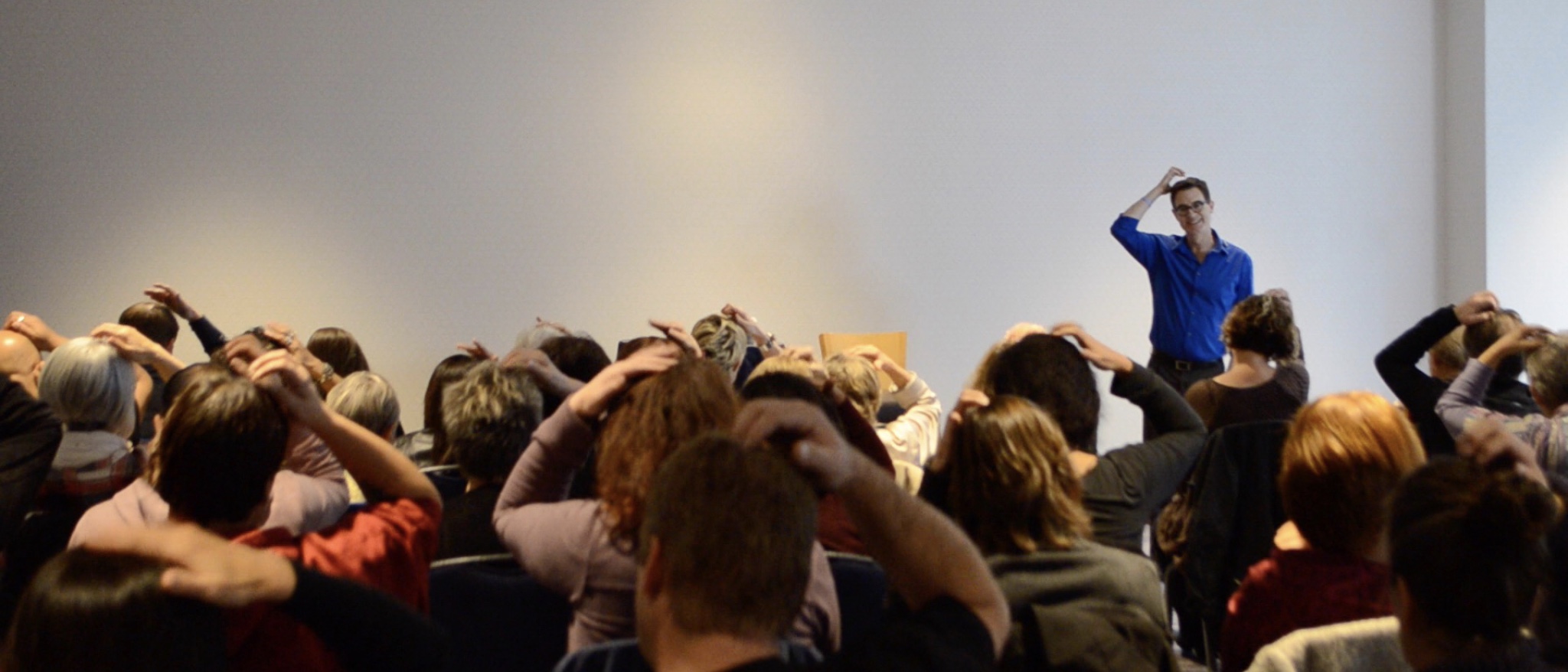Exploring the Emotional Freedom Technique to live the life you’ve imagined
By Shelby Tuttle
When it comes to alleviating anxiety, stress, and depression, many Americans are prescribed a myriad of remedies, some natural and others – not as much. Those seeking the natural route may employ plant-based medicines, while others may look to a therapist, spend more time in nature, implement a regular exercise routine, meditate, or explore alternative therapies like acupuncture or eye movement desensitization and reprocessing therapy (EMDR). One such alternative gaining more traction over the last decade is the Emotional Freedom Technique (EFT), more commonly known as “tapping” – a practice founded by Stanford engineering graduate and certified master practitioner of neuro-linguistic programming, Gary Craig.
A 2004 report from the first large-scale study conducted on “energy psychology” by Joaquin Andrade, M.D. and David Feinstein, Ph.D., found that over the course of five and a half years, of the 5,000 participants seeking treatment for anxiety, 90% of those who received acupoint tapping therapy experienced improvement in symptoms, versus 63% of the patients who received cognitive behavioral therapy (CBT).
According to the text, “Only three acupoint tapping sessions were needed before an individual’s anxiety was reduced, while an average of 15 were needed for CBT to show results. Complete relief of symptoms was seen in 76% of people in the acupoint tapping group compared with 51% of people in the CBT group.”
 The technique is often used in the field of modern psychology as a supplement to cognitive behavioral therapy. To date, more than 100 studies show that tapping can reduce anxiety, alleviate stress, and relieve symptoms of post-traumatic stress disorder (PTSD). The technique involves tapping on nine (or sometimes 10) key meridian points on the hands, face, and body with your fingertips while focusing on uncomfortable feelings and using positive statements to defuse those feelings.
The technique is often used in the field of modern psychology as a supplement to cognitive behavioral therapy. To date, more than 100 studies show that tapping can reduce anxiety, alleviate stress, and relieve symptoms of post-traumatic stress disorder (PTSD). The technique involves tapping on nine (or sometimes 10) key meridian points on the hands, face, and body with your fingertips while focusing on uncomfortable feelings and using positive statements to defuse those feelings.
Nationally renowned tapping expert Brad Yates began his career as a certified clinical hypnotherapist. After his own experience with the effectiveness of tapping in 2000, he instituted it into his work with his clients right away. Several years later, tapping is his main modality of personal development work to help others.
Yates describes tapping as “a simple mind-body tool for down-regulating stress.” As one of the first of his kind to arrive on the YouTube scene 15 years ago, he has provided a catalog of more than 1,100 videos for his nearly 275,000 subscribers, who have watched his content more than 41 million times. He has coached over 10,000 students, including physicians, professional athletes, and actors. He notes that over 80% of his audience and clientele are women.

“I believe this is because men are generally taught to not ask for help. And even when they are willing to show up, many are more guarded at first, though not all,” he says. “The issue that holds most people back is a feeling of unworthiness. Too many people base their self-worth on what others have said or done to them. Unfortunately, I see this even more with women, who are often told by society that they are less capable and/or deserving than men.”
Orange County-based tapping authority, coach, speaker, and Amazon-best-selling author Gala Darling has built an empire through her ability to uplift and empower women, although not exclusively. Her programs are open to all genders and identities but cater to those who identify as women. Her weekly Zoom calls for a multitude of programs are packed with hundreds of members – mostly women – from all over the globe.
She shares, “The issues that women have are unique, and as a woman, I understand them. I believe if you’ve discovered something that is helpful, it is your responsibility to share it with others.”
Darling discovered tapping at age 23 and used the method to heal a number of challenges she was experiencing personally, including asthma, depression, and an eating disorder.
“At the time, I had a fashion blog and realized that what people really wanted wasn’t the perfect pair of jeans, it was to feel confident and good about themselves. Tapping helped me do that more than anything I’d ever tried, so I started to talk about it.” She continues, “I helped a girl with her asthma attacks, and she messaged me later to tell me she was training for a marathon! That’s one of my favorite stories, because the shift is so enormous and is similar to my first experience with tapping.”
Although plenty of research exists, Yates and Darling have both experienced “resistance” from would-be clients wanting proof surrounding the efficacy of tapping. They agree that as a society, we regularly partake in behaviors that are proven to be bad for us yet often don’t engage in those that are proven to be good.
“I usually talk about how the act of tapping brings down the levels of cortisol in the brain,” says Darling. “However, people can tell you a million things that are supposed to be good for you, but until you actually experience it, you won’t understand how it could have an effect on your life. What I love about tapping is that the proof is in the pudding. Once someone tries it, the emotional shift they feel is undeniable.”
Yates adds, “Because humans are change-averse, they generally have a resistance to anything that might facilitate change. Calling something ‘woo-woo’ feels like a safe way for them to dismiss it and not experience it. Folks will say ‘Where’s the research?’ even though on a daily basis they are engaging in things that research will tell them is unhealthy. Over the years, I’ve seen some adamant skeptics become big fans of the process.”
For those looking to gain a deeper understanding of how tapping works, it helps to know that – according to traditional Chinese medicine – there are more than 2,000 acupoints on the human body. All of these points are connected by meridians that are responsible for sending energy — or Qi (pronounced “chee”) – throughout the body in order to keep it in a state of balance and harmony. According to an online article on the benefits of acupuncture from Johns Hopkins Medicine, “Disruption of the energy flow can cause disease. By applying acupuncture to certain points, it is thought to improve the flow of Qi, thereby improving health.” The same theory holds true for the principles of acupressure and tapping, where the meridians are stimulated by touch instead of needles.
In the study from Dr.s Andrade and Feinstein, they refer to tapping as “energy-based psychotherapy.” Used in clinical settings, the practice can be used similarly to EMDR for the reduction of PTSD symptoms. To begin, a mental health professional will assist the patient in identifying a statement that brings to light a traumatic event or memory to solicit an emotional response. Neural pathways will be activated that carry the distress signals of the negative experience. Tapping on the acupoints while focusing on the traumatic event sends a soothing signal to the brain that will naturally calm the body’s stress response to that traumatic memory. Over time and with repeated frequency, the brain will begin to process this stressful memory in a neutral way.
In other settings where tapping is used to calm anxiety, practitioners may work with clients to implement a simple set-up phrase: “Even though I have this [fear or problem], I deeply and completely love, accept, and forgive myself.” The key is to focus on the feeling that the problem is bringing to light for you, while providing yourself with a positive affirmation to neutralize any anxiety brought forward by the negative emotion. Simply put, tapping disrupts your limiting beliefs and thought patterns to replace them with new positive thoughts and feelings.
And while one-on-one coaching with experts like Darling and Yates may provide extra benefits, the good news is that anyone can do tapping on their own to move energetic blocks and experience the benefits of this growing methodology.
“The great thing about tapping is that it’s simple. All you need to do is tell the truth about how you’re feeling about a certain subject, and then just affirm that you love, accept, and forgive yourself anyway,” says Darling.
Because tapping clears negative thought patterns and establishes new positive ones, it can also be used as a powerful manifestation technique. Darling – whose latest book, Magnetic Mindset, focuses on using tapping techniques to manifest your wildest desires – notes that limiting beliefs are what stand in the way of us being able to receive the things that we want the most.
 “When we are hoping to manifest something, the only reason it is slow to happen is because we have a bunch of stories in our head that resist it. We feel we don’t deserve it, we don’t know how it would happen, we don’t feel ready, we are afraid of the change that will happen when it occurs. You can use tapping to alleviate the fear, the resistance, and the secondary benefits so that you can draw your desires to you much faster.”
“When we are hoping to manifest something, the only reason it is slow to happen is because we have a bunch of stories in our head that resist it. We feel we don’t deserve it, we don’t know how it would happen, we don’t feel ready, we are afraid of the change that will happen when it occurs. You can use tapping to alleviate the fear, the resistance, and the secondary benefits so that you can draw your desires to you much faster.”
In a May 2021 blog posted on her website, she tells her readers, “The place where it gets tricky is asking ourselves what beliefs need to be shifted. In other words, what stories are you telling yourself every day that cause you to have the habits that are getting you the results you have now? Once we know what is driving our dysfunction, we can use tapping to face it, own it, even find the humor in it. And then we can reprogram ourselves. Choose new beliefs and new priorities. Create habits that will lead us to what we really want.”
She describes limitations as a war between our conscious and subconscious minds.
“When you desire something – like a partner for example – with your conscious mind, but you are afraid of it and resisting it with your subconscious mind – that piece of you that is dedicated to keeping you safe – you are always going to be at odds. You are not aligned with your desires, because a part of you fears the desire. With tapping, we can get these two ‘minds’ in sync.”
Yates adds that it can even assist individuals who engage in self-sabotage.
“Self-sabotage is simply misguided self-love. When we are behaving in ways that don’t objectively benefit us, such as unhealthy eating or poor financial decisions or procrastination – rather than beating ourselves up, we want to be compassionate with ourselves, and look at why we are doing that. Tapping helps us clear the stress that gets in the way.”
For more information on Gala Darling and Brad Yates, visit galadarling.com and www.tapwithbrad.com.







